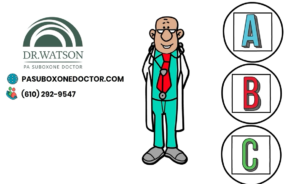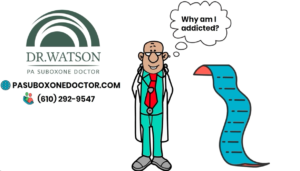Alcohol Use Disorder Treatment Programs
When it comes to addressing alcohol use disorder (AUD), treatment programs play a vital role in helping individuals overcome their struggles with alcohol addiction. These programs are designed to provide professional support, guidance, and resources to individuals seeking recovery. In this section, we will explore the understanding of alcohol use disorder, the importance of treatment programs, and provide an overview of outpatient alcohol treatment programs.
Understanding Alcohol Use Disorder
Alcohol use disorder, commonly known as alcohol addiction, is a chronic condition characterized by the compulsive consumption of alcohol despite negative consequences. It affects millions of individuals worldwide and can have severe physical, psychological, and social implications. Some common signs and symptoms of alcohol use disorder include:
- Cravings and a strong urge to drink
- Difficulty controlling or limiting alcohol intake
- Increased tolerance to alcohol
- Withdrawal symptoms when attempting to stop drinking
- Neglecting responsibilities and hobbies due to alcohol use
To learn more about alcohol use disorder and its associated symptoms, visit our article on alcohol withdrawal symptoms.
Importance of Treatment Programs
Treatment programs are essential for individuals with alcohol use disorder as they provide the necessary tools and support to achieve long-term recovery. These programs offer a structured and comprehensive approach to address the physical, emotional, and behavioral aspects of alcohol addiction. By engaging in treatment, individuals can gain insights into their addiction, develop coping strategies, and work towards a healthier and more fulfilling life.
Overview of Outpatient Alcohol Treatment Programs
Outpatient alcohol treatment programs are a popular choice for individuals seeking recovery from alcohol use disorder. These programs offer flexibility and convenience by allowing individuals to receive treatment while maintaining their daily routines and responsibilities. Outpatient programs typically involve regular visits to a treatment center or clinic, where individuals receive counseling, therapy, and support.
Table: Benefits of Outpatient Treatment Programs
| Benefits |
|---|
| Flexibility and convenience |
| Lower cost compared to inpatient programs |
| Continued support and integration into daily life |
One of the key advantages of outpatient treatment programs is the flexibility they offer. These programs allow individuals to schedule their treatment sessions around their work, school, or family commitments. This flexibility can be particularly beneficial for those who require ongoing support while maintaining their daily responsibilities.
Compared to inpatient treatment programs, outpatient programs are often more cost-effective. They do not require individuals to reside in a treatment facility, which can significantly reduce the overall cost of treatment. However, it’s important to note that the intensity and duration of outpatient treatment may vary depending on the individual’s needs and the program structure.
Outpatient treatment programs also provide continued support and integration into daily life. Individuals can apply the strategies and skills learned during treatment to real-life situations, helping them navigate challenges and triggers outside of the treatment environment.
In the next section, we will explore the components of outpatient treatment programs, including individual counseling, group therapy, and education and skill-building. By understanding these components, individuals can gain a comprehensive understanding of the support and resources available through outpatient alcohol treatment programs.
Benefits of Outpatient Treatment Programs
Outpatient alcohol treatment programs offer several advantages for individuals seeking help with their alcohol use disorder. These programs provide flexible and convenient treatment options, lower cost compared to inpatient programs, and continued support and integration into daily life.
Flexibility and Convenience
One of the key benefits of outpatient treatment programs is the flexibility they offer. Unlike inpatient programs, which require individuals to reside at a treatment facility for a specific period, outpatient programs allow patients to live at home and continue with their daily responsibilities. This flexibility is particularly beneficial for individuals who have work, family, or other commitments that they cannot put on hold.
Outpatient programs typically offer evening or weekend sessions, making it easier for individuals to attend treatment sessions without disrupting their daily routines. This flexibility allows patients to receive the necessary treatment while still maintaining their personal and professional responsibilities.
Lower Cost
Outpatient treatment programs are generally more affordable than inpatient programs. Since patients are not required to stay at a treatment facility, the costs associated with accommodation, meals, and 24/7 supervision are significantly reduced. This makes outpatient programs a more cost-effective option for individuals who may not have the financial resources to afford inpatient treatment.
The lower cost of outpatient programs also means that individuals can receive treatment for a longer duration, if needed, without incurring excessive financial burden. This extended treatment duration can be beneficial for individuals with severe alcohol use disorder or those who require ongoing support to maintain sobriety.
Continued Support and Integration
Outpatient treatment programs provide continued support and integration into daily life. After completing an intensive treatment phase, individuals transitioning to outpatient care have access to ongoing counseling, therapy, and support groups. This continued support helps individuals navigate the challenges of maintaining sobriety in their everyday lives.
By participating in outpatient treatment, individuals can apply the skills and strategies they learn in therapy sessions directly to real-world situations. This integration into daily life allows patients to practice relapse prevention techniques, develop healthier coping mechanisms, and build a strong support network within their community.
The benefits of outpatient treatment programs make them an appealing option for many individuals seeking help for alcohol use disorder. However, it’s important to assess individual treatment needs, consider various factors, and consult with professionals to determine whether outpatient treatment is the right choice. For more information on the treatment journey, refer to our articles on alcohol withdrawal symptoms, alcohol detoxification process, and long-term effects of alcohol abuse.
Components of Outpatient Treatment Programs
Outpatient alcohol treatment programs provide a comprehensive approach to addressing alcohol use disorder. These programs consist of various components that work together to support individuals on their path to recovery. In this section, we will explore three key components commonly found in outpatient treatment programs: individual counseling, group therapy, and education and skill building.
Individual Counseling
Individual counseling is a crucial component of outpatient treatment programs. It involves one-on-one sessions with a qualified counselor or therapist who specializes in addiction treatment. These sessions provide a safe and confidential space for individuals to explore their thoughts, emotions, and behaviors related to alcohol use.
During individual counseling, the counselor works closely with the individual to develop personalized treatment plans. They help identify triggers, develop coping strategies, and set achievable goals for recovery. Individual counseling sessions provide an opportunity for deep introspection, addressing underlying issues that may contribute to alcohol use disorder. It allows individuals to work through their challenges and develop healthier ways of managing stress and cravings.
Group Therapy
Group therapy is another integral part of outpatient treatment programs. It involves sessions where individuals with alcohol use disorder come together in a supportive group setting. Led by a trained facilitator, group therapy provides a platform for individuals to share their experiences, gain insights, and receive encouragement from peers facing similar challenges.
Group therapy offers a sense of community and a chance to build connections with others who understand the journey of recovery. It provides a space for individuals to learn from one another, share strategies for overcoming obstacles, and celebrate successes. Group therapy can also help individuals improve their communication skills, develop empathy, and build a support network that can continue beyond the treatment program.
Education and Skill Building
Education and skill building components in outpatient treatment programs aim to equip individuals with the knowledge and tools necessary for long-term recovery. These components often include psychoeducation sessions, workshops, and interactive activities that focus on understanding alcohol use disorder, its effects, and strategies for maintaining sobriety.
Education sessions may cover topics such as alcohol withdrawal symptoms, the alcohol detoxification process, and the long-term effects of alcohol abuse. Participants learn about the impact of alcohol on physical and mental health, as well as the importance of self-care and relapse prevention. Skill-building activities may include stress management techniques, healthy coping strategies, and goal setting.
By combining individual counseling, group therapy, and education and skill building, outpatient treatment programs provide a comprehensive approach to alcohol use disorder treatment. These components work together to address the complexities of addiction and support individuals in their journey toward recovery. If you’re interested in learning more about alcohol withdrawal symptoms, alcohol detoxification process, and the long-term effects of alcohol abuse, visit our articles on alcohol withdrawal symptoms, alcohol detoxification process, and long-term effects of alcohol abuse.
Is Outpatient Treatment Right for You?
Deciding on the most suitable treatment approach for alcohol use disorder can be a complex decision. Outpatient treatment programs offer a flexible and effective option for individuals seeking recovery from alcohol addiction. However, it’s important to assess your treatment needs, consider various factors, and consult with professionals to determine if outpatient treatment is the right choice for you.
Assessing Treatment Needs
Assessing your treatment needs is a crucial step in determining the appropriateness of outpatient treatment. Consider the severity of your alcohol use disorder, any co-occurring mental health conditions, and the presence of withdrawal symptoms. Severe cases of alcohol addiction or those with significant medical or psychiatric concerns may require more intensive treatment, such as inpatient or residential programs. For more information on alcohol withdrawal symptoms and the detoxification process, refer to our article on alcohol withdrawal symptoms and alcohol detoxification process.
Factors to Consider
Several factors should be taken into account when considering outpatient treatment for alcohol use disorder. Some key factors include:
- Level of support: Assess the availability of a strong support system, including family, friends, or a recovery community. Outpatient treatment requires a certain level of self-discipline and support outside of the program.
- Responsibilities and commitments: Consider your work, family, and personal commitments. Outpatient treatment allows you to maintain these responsibilities while seeking treatment.
- Stability and safety: Evaluate your living situation to ensure it is conducive to recovery. If your environment is unstable or unsafe, an outpatient program may not provide the necessary support.
- Motivation and readiness for change: Reflect on your willingness and readiness to commit to treatment. The success of outpatient treatment relies on an individual’s motivation and active participation in the recovery process.
Consulting with Professionals
Consulting with professionals, such as addiction specialists or healthcare providers, can provide valuable insights and guidance in making an informed decision. These professionals can conduct comprehensive assessments, review your treatment needs, and offer personalized recommendations based on your unique circumstances. They can help you weigh the benefits and limitations of outpatient treatment and explore alternative options if necessary. It’s important to engage in open and honest discussions to ensure you receive the most appropriate and effective care.
When considering outpatient treatment, it’s essential to tailor the decision to your individual needs. By assessing your treatment needs, considering various factors, and seeking professional advice, you can make an informed choice about whether outpatient treatment is the right path for your recovery journey. For information on the long-term effects of alcohol abuse, refer to our article on long-term effects of alcohol abuse.
Finding the Right Outpatient Treatment Program
When seeking outpatient treatment for alcohol use disorder, it’s important to find a program that aligns with your specific needs and goals. Here are some key considerations to help you in your search:
Researching and Evaluating Programs
To begin your search for the right outpatient treatment program, it’s crucial to conduct thorough research. Start by exploring reputable online resources, government websites, and directories that provide information about different treatment programs. Look for programs that specialize in alcohol use disorder treatment and have experience in helping individuals with similar needs.
As you research, pay attention to the treatment approaches and services offered by each program. Some programs may focus on specific modalities, such as cognitive-behavioral therapy or motivational interviewing. Evaluate how these approaches align with your preferences and treatment goals.
Considering Accreditation and Credentials
Accreditation and credentials play a crucial role in determining the quality and credibility of an outpatient treatment program. Look for programs that are accredited by reputable organizations, such as the Commission on Accreditation of Rehabilitation Facilities (CARF) or the Joint Commission. Accreditation ensures that the program meets specific standards of care and adheres to best practices in the field.
In addition to accreditation, consider the credentials of the program’s staff. Look for licensed and experienced professionals, such as licensed addiction counselors or therapists, who specialize in alcohol use disorder treatment. Their expertise can greatly contribute to the effectiveness of the program and your overall treatment experience.
Seeking Recommendations and Reviews
Seeking recommendations and reviews from trusted sources can provide valuable insights into the quality and effectiveness of outpatient treatment programs. Reach out to healthcare professionals, therapists, or support groups in your community who have knowledge and experience in alcohol use disorder treatment. They may be able to provide recommendations based on their expertise or the experiences of others.
Online reviews and testimonials from individuals who have gone through the programs can also offer valuable perspectives. However, it’s important to approach online reviews with caution, as they may not always reflect the overall quality of a program. Look for patterns and common themes in the reviews to gain a better understanding of the program’s strengths and weaknesses.
By conducting thorough research, considering accreditation and credentials, and seeking recommendations and reviews, you can increase your chances of finding an outpatient treatment program that meets your needs. Remember, finding the right program is an important step towards your recovery journey.








